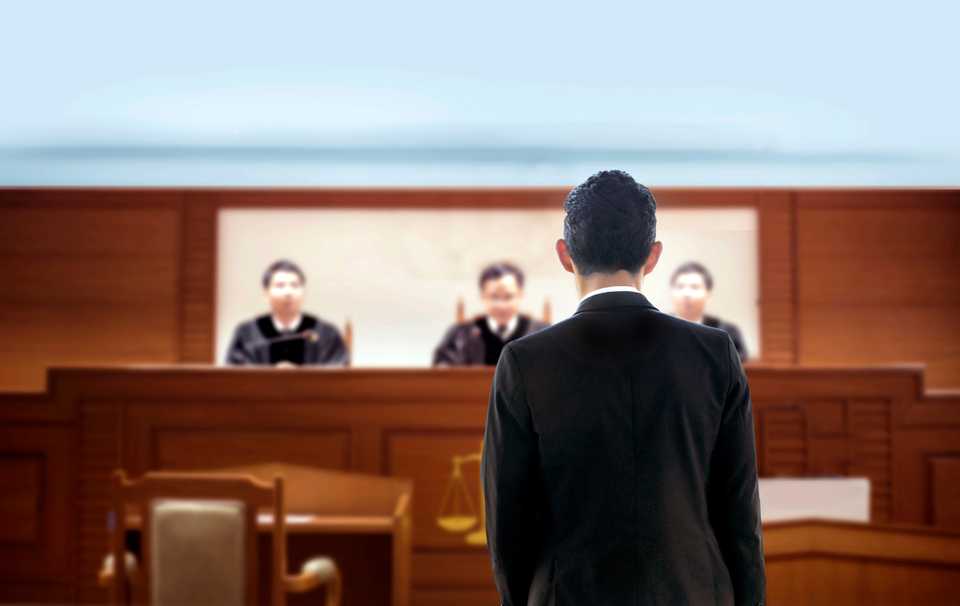You may have heard of the Jordan ruling, made by the Supreme Court of Canada in 2016. If not, you must still be familiar with the slowness of the Canadian judicial system and the long delays that accompany both civil and criminal trials.
The Jordan case marked a major turning point in Canadian criminal procedure. This decision was made with the aim of improving the efficiency of the criminal justice system by establishing reasonable deadlines for court proceedings.

However, since it was issued, the Jordan ruling has been the subject of many myths and misunderstandings. In this article, JuriGo explores the highlights of the Jordan ruling and shares the impacts of this decision on the criminal justice system.
What does the Jordan ruling tell us?
Everything starts in December 2008, in British Columbia, with Mr. Barrett Richard Jordan, who is accused in a drug case. He is only found guilty 5 years after his charge, in 2013.
Thus, Mr. Jordan spends almost 5 years in prison even before having his trial and being sentenced. Mr. Jordan then alleges that this waiting period is much too long and that the justice system was not able to judge him within a reasonable time.
Following a lengthy appeal process, Mr. Jordan asks the Supreme Court of Canada to stop the proceedings against him. Finally, in July 2016, 7 years after his charge, the Supreme Court of Canada overturns Mr. Jordan's conviction.
The Supreme Court's decision is based on the fact that every person accused of a crime has the right to be tried within a reasonable time, as provided for in section 11b) of the Canadian Charter of Rights and Freedoms:
"Every accused person has the right to be tried within a reasonable time"
Thus, the Supreme Court of Canada concludes that the 49-month delay that Mr. Jordan was subjected to was an unreasonable delay.
How have things been going since the Jordan ruling?
Since this ruling, new rules exist to limit unreasonable delays in criminal matters. When a person is accused of a crime, their trial must take place within a maximum of 18 or 30 months after the date of their charge.

The 18-month delay applies to people accused of a crime before the Quebec Court, while the 30-month delay applies to trials before the Superior Court of Quebec. It is interesting to note that about 90% of trials take place before the Quebec Court, which means that the vast majority of trials are subject to the 18-month delay.
If this waiting period is not respected, legal proceedings can be stopped. In such a case, there is a "stay of proceedings", meaning that the accused person is neither guilty nor acquitted.
For example, if a person is accused of a crime and must appear before the Quebec Court, their trial date must be set within 18 months from their charge date. If the trial exceeds this date, the delay will be presumed "unreasonable" and this could put an end to the judicial process, at the request of the accused.
What are the exceptions to the Jordan ruling?
It should be noted that certain delays caused by the defense are excluded from the calculation of a reasonable delay. Moreover, the Supreme Court has provided transitional measures, that is more specific rules for the cases that preceded the Jordan ruling, in order to avoid receiving thousands of procedure stoppages.
There are also exceptions for distinct events and more complex cases, which could cause the trial to go beyond the 18-month period. For example, an illness or any kind of unforeseen event at the trial could constitute a distinct event. In such a case, the time "lost" by the distinct event will be subtracted from the delay.
As for complex cases, these are cases where the evidence is particularly voluminous, or cases where several witnesses need to be called. Thus, if the delay exceeds the ceiling set by the Jordan ruling, it will generally be considered a reasonable delay due to the peculiarities of the case.
What are the consequences of the Jordan ruling on the criminal justice system?
Since the Jordan ruling, it is possible to see that the judgment has caused controversy among the various stakeholders in the justice system. First, several people accused of serious crimes, such as murder or corruption, have been released thanks to the Jordan ruling.
However, these cases eventually led to the appointment of new judges and the opening of more courtrooms, which had the effect of speeding up the process. Since the Jordan ruling, judges are more involved in the management of the trial in order to advance cases.
A less positive consequence of the Jordan ruling comes precisely from the fact that the judicial process is accelerated. According to some defense lawyers, since most cases benefit from a delay of only 18 months, judges are constantly trying to speed up the resolution of the case, which results in less time to review evidence, meet with clients, prepare cases, etc.
The lack of defense lawyers in some regions of Quebec also has an impact on the reception of the Jordan ruling, as other lawyers are under more pressure.
In general, it is a positive initiative if you are accused of a crime in Quebec, since you have a guarantee that your fundamental rights will be more respected than before the Jordan ruling.

Therefore, it should be noted that the 18-month ceiling set by the Jordan ruling is a presumed unreasonable delay, but it is always possible to demonstrate that this delay was justified, for example in case of delays caused by the defense or a separate event.
You can nevertheless request a halt to proceedings due to a delay that exceeds the 18 or 30 months ceiling, but you will have to prove that the delay was unreasonable in your case.
JuriGo helps you find a lawyer specialized in criminal law!
You have been accused of an offense and you believe that the process is taking too much time? You are right to ask questions! Indeed, since 2016, there is a ceiling for delays in criminal proceedings. In most cases, this delay is 18 months, but it can also rise to 30 months in the cases of the Superior Court of Quebec.
Of course, there are exceptions to the rule of the presumed unreasonable delay of the Jordan ruling. However, if your trial exceeds this period, you can always request a halt to the proceedings in court, as long as you are able to demonstrate the unreasonableness of the delay.
To do this, you will certainly need the assistance of a criminal law attorney . Indeed, a criminal lawyer can help you explore all possible avenues, including the possibility of obtaining a halt to proceedings in the event of an unreasonable delay.
To find out more, contact a criminal law attorney now. All you have to do is fill out the request form at the bottom of the page, and JuriGo will take care of putting you in contact with a criminal lawyer in your area!
This process is free and does not commit you to anything, so what are you waiting for to defend your rights?